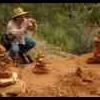-
Content count
15,020 -
Joined
-
Last visited
-
Days Won
62
Everything posted by thelerner
-

Asking for something in a prayer
thelerner replied to idquest's topic in Esoteric and Occult Discussion
I don't want to pray to a deity that's transactional or needs buttering up. I like the concept that prayers that seem to start by praising God are really meant to have us focus on the Greatness, Beauty and Awesomeness of the world. To give thanks for our lives and all the good that goes on around us. I like Rabbi Nachman's practice of having a personal relationship with God; talking regularly, as to friend, loving creator, cheap psychologist. One difference, imo, between magic and religion is the focus on God's will, not ours. In religion we can petition but we accept what we get. We can ask with humility and hope but we accept that the Universe will decide and keep going the best that we can. So.. for me, asking for something in prayer means putting my mind to what I like in the world, earth, sky, grass, lakes, rivers, netflix, friends, family, breath.. Give thanks for it all and my life. Throw a desire in there, petition. As I've gotten older, I rarely ask. Que Sera, sera, whatever will be will be. Which in my tradition is kind of one of God's names. -
Yes, yes I do. I'm sure people chase random strangers into book stores and record as they teleport all the time. It's the sound effect of the teleport I have a problem with. From my research it should be more of a 'Bampf'. It's Spider-man, he's sensitive about the hyphen and while I've never seen him, I have noticed suspiciously large spider webs.
-
In Ki-Aikido there was the assumption that if you got the lower dan tien inorder, the rest took care of themselves. It was very hara oriented. One easy practice I picked up from Stillness Movement qigong, a medical style gi gong, is when in seated meditation keeping your loosely folded hands against your lower dan tien, versus a few inches away on your lap I'd normally do. Touching the dan tien in meditation helped me get a better feeling for the area. Plus you're not doing anything, you just have your hands facing your dan tien, a light focus. Something to try if it connects to you.
- 6 replies
-
- 1
-

-
- dan tian
- lower dan tian
-
(and 1 more)
Tagged with:
-
Today, March 18th, the site is working like a charm, best it's been in months. For me at least. Thank you Stirling and all the mods working toilessly in rooms full of mice on running wheels to bring us this site.
-
Hopefully not a fluke but using Chrome on a Mac, the site's speed and response is great. Like the old days. Kudos to the mods involved. Fingers crossed it keeps up. One never knows if it's one's browser, computer or the site.

